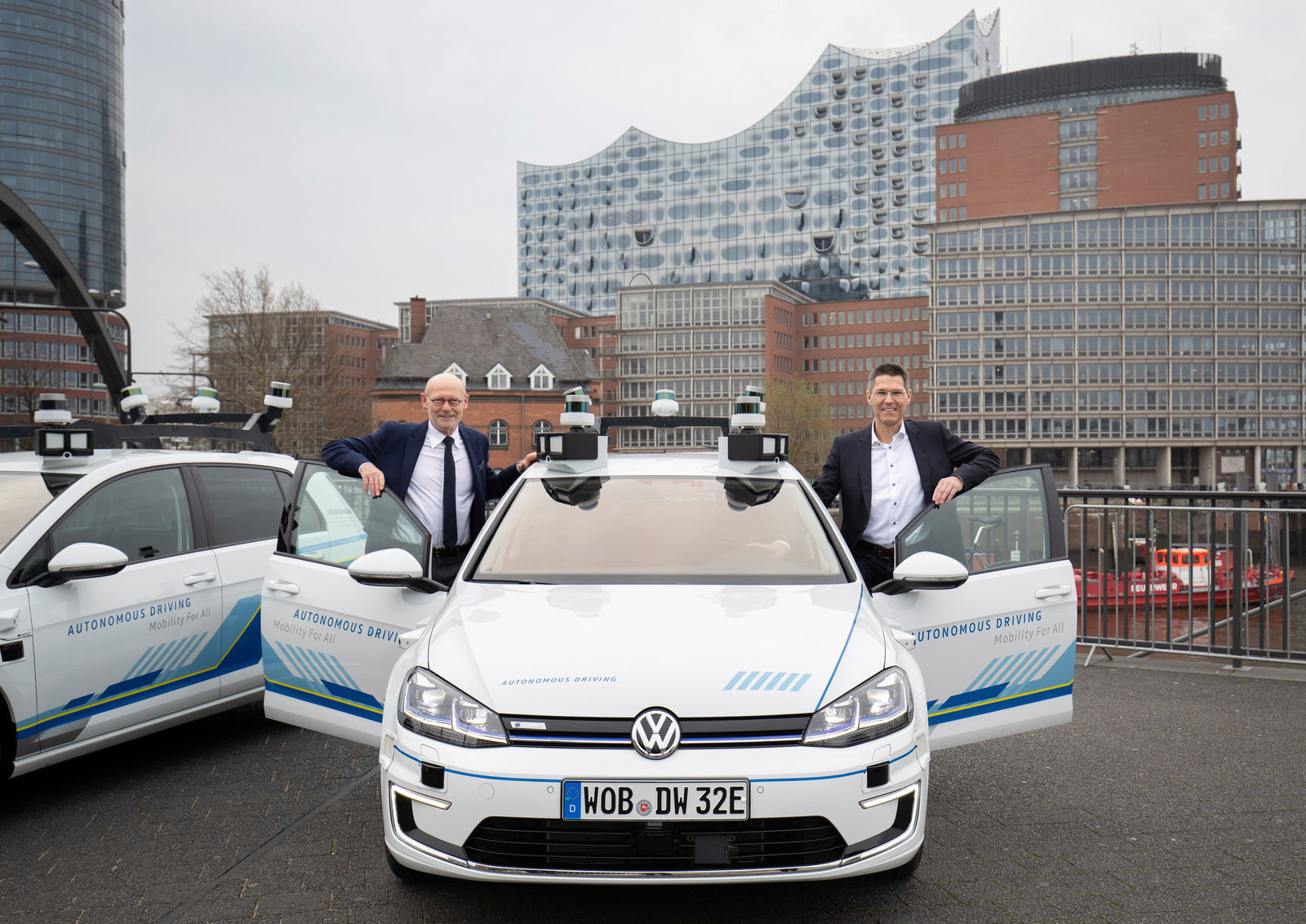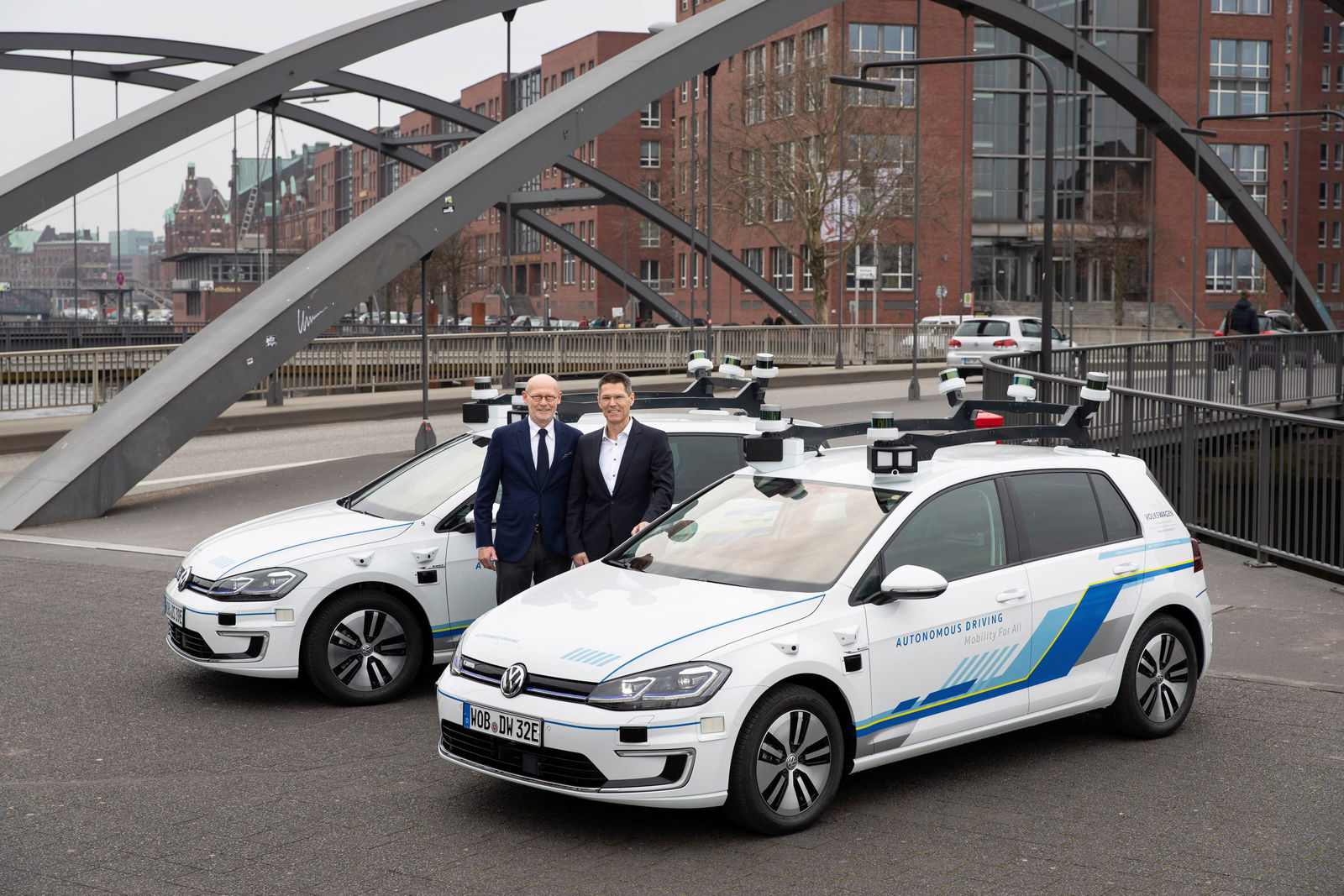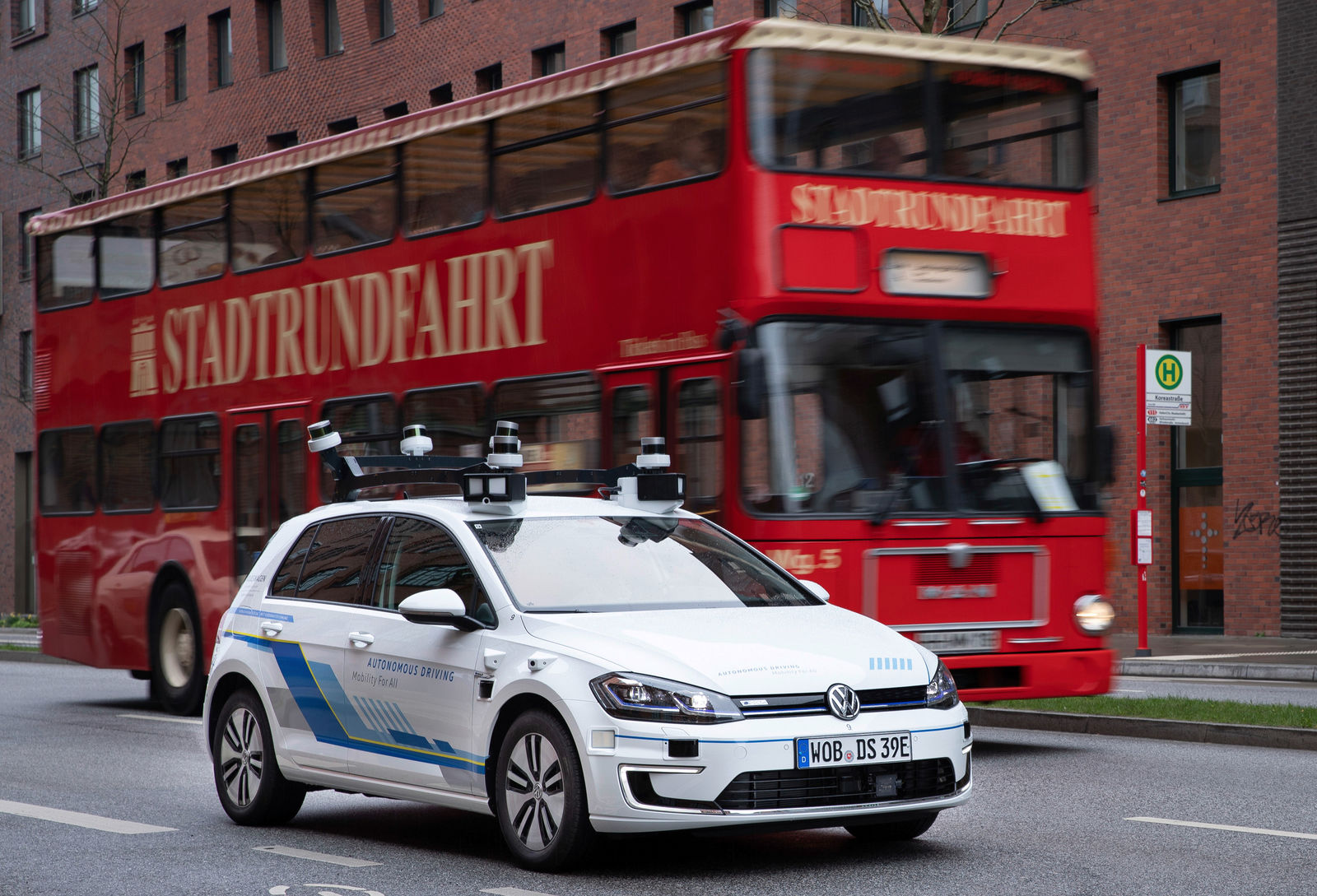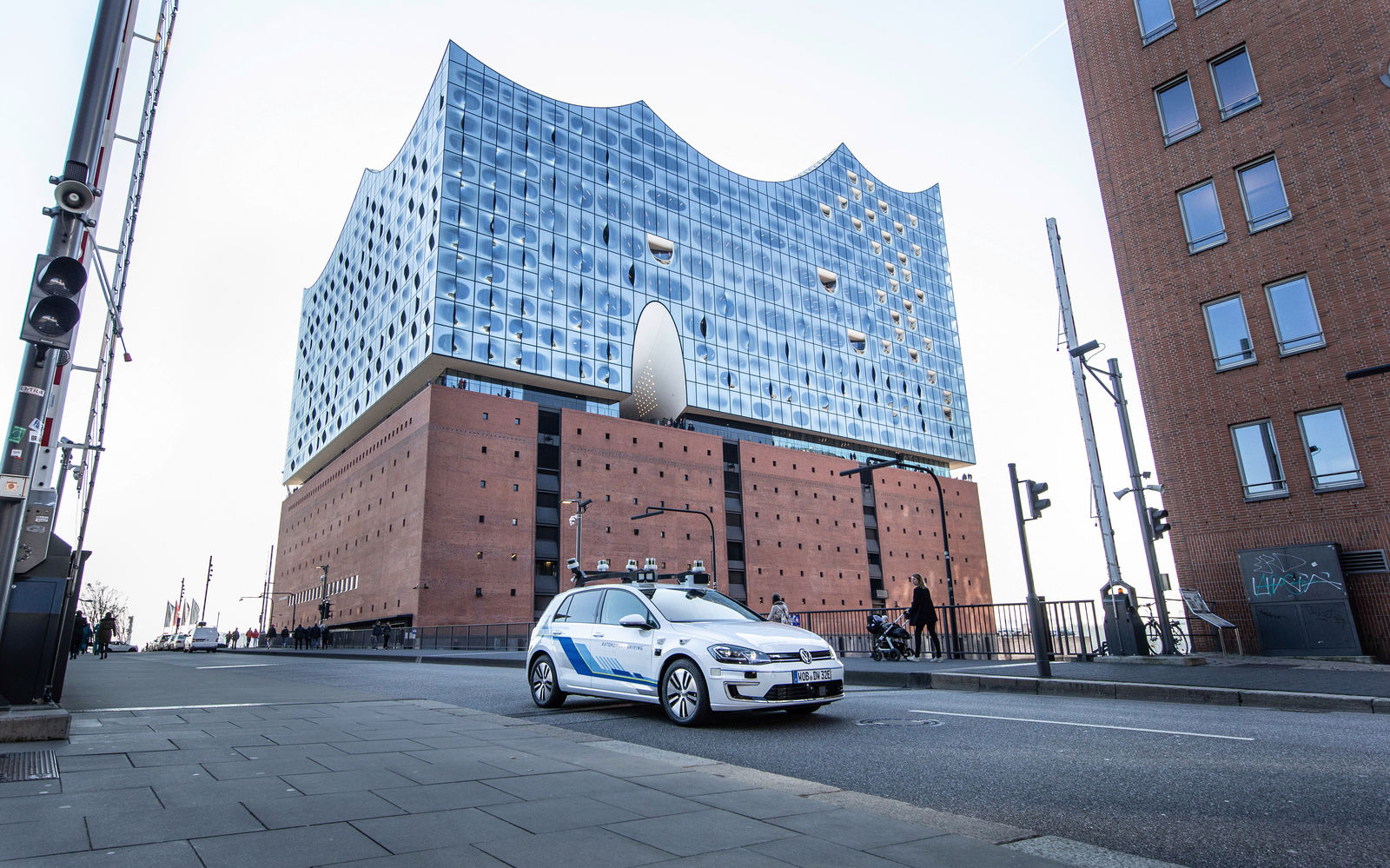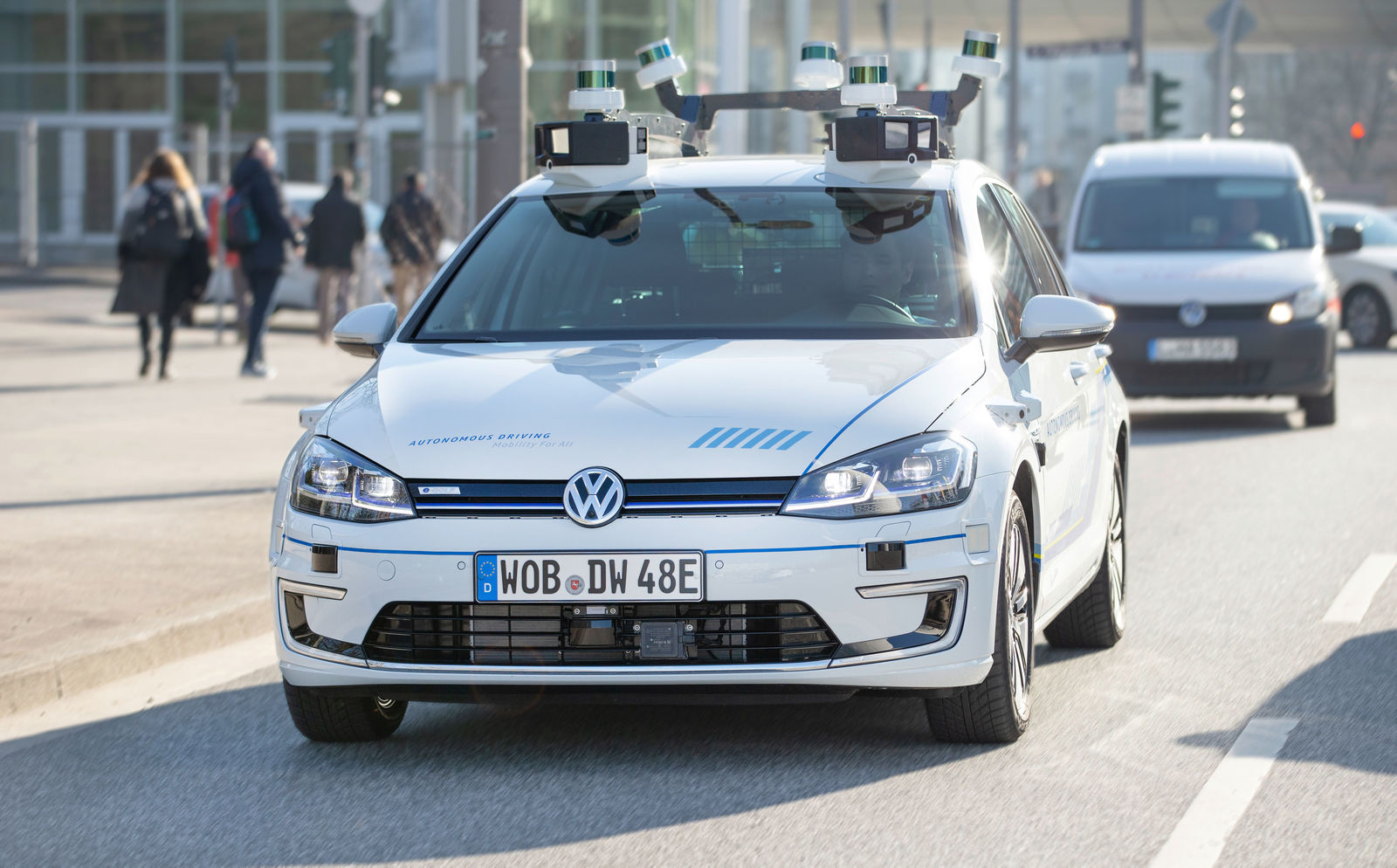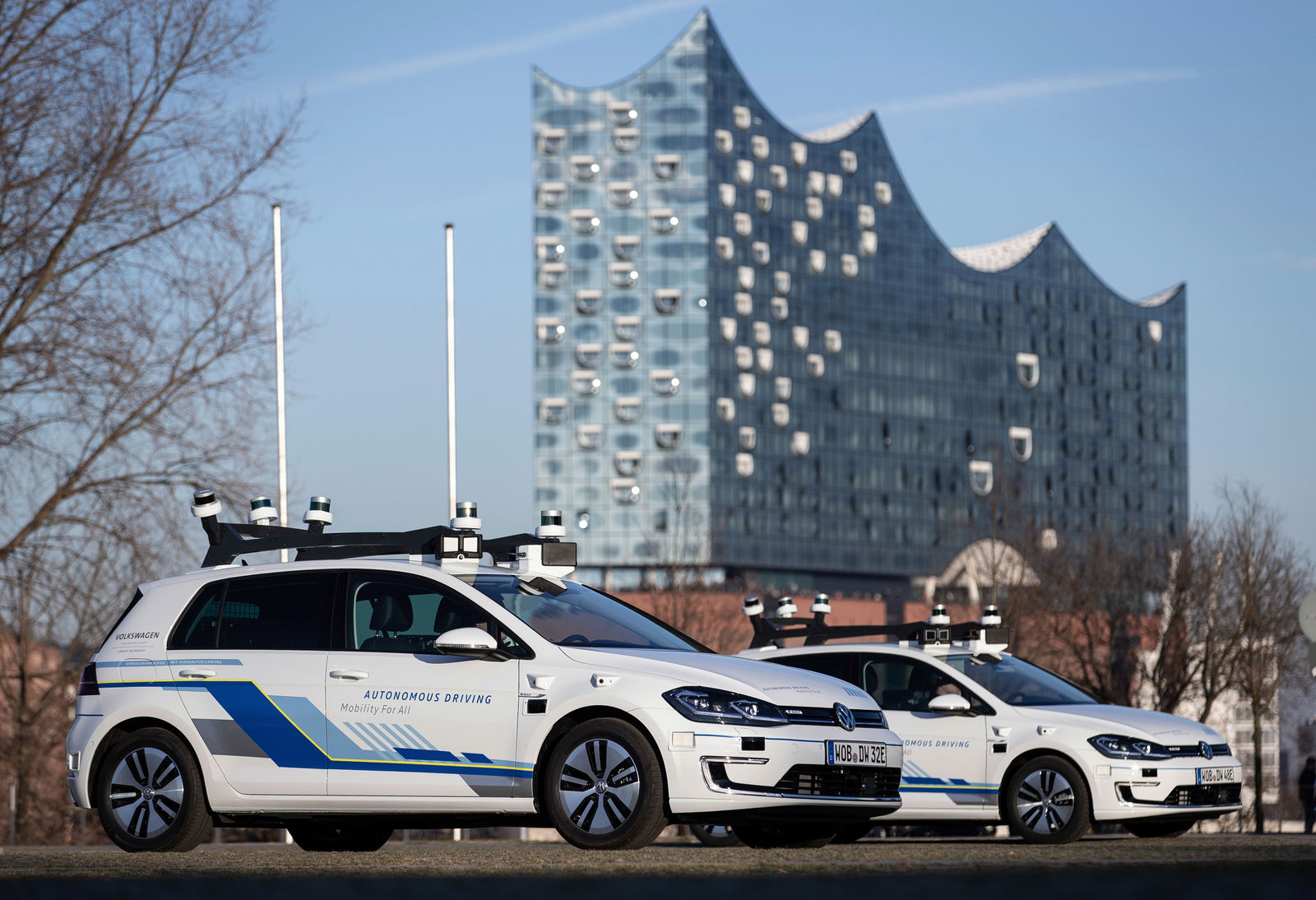Axel Heinrich, Head of Volkswagen Group Research, commented: “The tests center on technical possibilities as well as urban infrastructure requirements. In order to make driving even safer and more comfortable in future, vehicles not only have to become autonomous and more intelligent – cities must also provide a digital ecosystem that enables vehicles to communicate with traffic lights and traffic management systems as well as with one another.”
A 9-kilometer digital test bed for automated and connected driving is currently being constructed in the city of Hamburg, with completion scheduled for 2020. To that end, the Free and Hanseatic City of Hamburg is successively upgrading traffic lights with components for infrastructure-to-vehicle (I2V) and vehicle-to-infrastructure (V2I) communication. Volkswagen and the city of Hamburg are thus taking a decisive step to further optimizing traffic flows through digitalization and to full-size implementation of automated driving in the city area.
Michael Westhagemann, Hamburg’s Senator for Economics, Transport and Innovation, said: “Two and a half years from now, Hamburg will be hosting the World Congress for Intelligent Transport Systems (ITS). Automated driving will play a key role. I am delighted that our strategic partner Volkswagen has already become the first user for our digital test bed. We will establish Hamburg as a model city for intelligent mobility and be presenting numerous innovative mobility projects to a global audience in 2021.”
The e-Golf configured by Volkswagen Group Research have eleven laser scanners, seven radars and 14 cameras. Up to 5 gigabytes of data are communicated per minute during the regular test drives, each of which lasts several hours. Computing power equivalent to some 15 laptops is tucked away in the trunk of the e-Golf. This enormous computing capacity, combined with state-of-the-art sensor technology, ensures that data on pedestrians, cyclists, other cars, intersections, rights of way, parked vehicles and lane changes in moving traffic are captured over the shortest distances and in milliseconds. Despite the diversity and complexity of the information, the artificial intelligence used in the vehicle software must register all relevant objects and respond to them without triggering any false alarms. Several different artificial intelligence approaches are used: these include deep learning, neural networks and pattern recognition.
For safety reasons, specially trained test drivers will be seated behind the steering wheel during all test drives in Hamburg to constantly monitor all driving functions and intervene in an emergency. Furthermore, all data protection rules will be fully taken into account.
Volkswagen Group Research is collaborating with all brands and relevant Group departments to enable the functionality of automated driving on public roads – right through to Level 5. The findings of this project will be successively incorporated in further research and development initiatives. The goal is to be in a position to offer customers concrete products for the automated transport of goods and passengers on public roads a few years from now. This will contribute to lasting improvements in traffic flows and road safety. However, automated driving without a safety driver in public traffic requires changes in the legislative framework and the availability of the necessary infrastructure.
The different levels of automated driving
Level 1: Assisted driving
Example: ACC (Adaptive Cruise Control)
Level 2: Partial automation
Example: Travel Assist (combination of adaptive cruise control and lane-keep assist)
Level 3: Conditional automation
Example: Traffic Jam Assist
Level 4: High automation
Example: Park Pilot
Level 5: Full automation
Example: Fully self-driving transport








